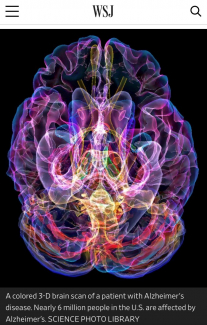
An emerging field in Alzheimer's disease research is focused on the role of location in disease risk. Using government and medical data, researchers are looking for patterns that may affect risk in counties and neighborhoods with increased and reduced rates of Alzheimer's disease. This line of work looks at Alzheimer's disease beyond the context of biological roots and looks for answers about the disease related to social determinants of health.
The article references a recent study from Amy Kind, MD, PhD, and her research team that found neighborhood disadvantage was associated with the presence of Alzheimer's disease-related brain changes at autopsy. The study team found people who lived in the poorest neighborhoods at the time of their death have roughly twice the odds of having these brain changes than people who lived in the wealthiest neighborhoods. Ryan Powell, PhD, MA, a member of the Kind lab, was quoted in the article.
"Alzheimer's Research Looks at Hot Spots Across the U.S." appeared in The Wall Street Journal on November 16, 2020 (subscription required). The article is available for free at Microsoft News.
- Log in to post comments



